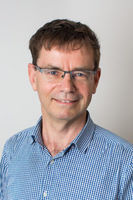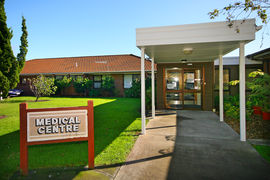Central Auckland > GPs / Accident & Urgent Medical Care > National Hauora Coalition >
TAHI Care
Aged Residential Care General Practice Service, General Practice (GP)
Today
8:30 AM to 4:00 PM.
Description
We are a dedicated practice servicing the needs of the residents of Selwyn Village and the wider community.
Consultations are by appointment only. Our standard consultation time is 15 minutes.
Staff
Nurse Practitioner
Shinu Mathew (Nurse Practitioner)
Malki Ruppage (Nurse Practitioner)
Nurses
Joy Yang
Emily Chen
Nisha Mathew
Receptionist
Ann Motion
Doctors
-

Dr Peter Bowden
General Practitioner - Vocationally Registered
-

Dr Stuart Monk
General Practitioner - Vocationally Registered
Enrolling new patients
Restricted enrolment
This practice is accepting some new patients to enrol, but with restrictions.
Members of the public outside of Selwyn Village are also welcome to join this practice
Fees
|
Consult 65 years Plus |
$55 |
|
Community Service Card Holders 65 Years Plus |
$19.50 |
|
Casual |
$100 |
|
ACC-Co Payment |
$45 |
|
ACC-Co Payment |
$19.50 |
|
Family Meeting |
$70 |
|
Home Visit |
$165 |
|
Driving Medical |
$100 |
|
Admission Medical |
$165 |
|
Nurse Consultation |
$35 |
|
Nurse Consultation |
$13 |
|
Administering Injections |
$30 |
|
Dressings from |
$25 |
|
Liquid Nitrogen Application |
$20 |
|
Blood Pressure Checks |
$10 |
|
ECG |
$75 |
|
Punch Biopsy |
$100 |
|
Excision (price may vary) |
$400 |
|
Repeat Prescription |
$25 |
Hours
8:30 AM to 4:00 PM.
| Mon – Fri | 8:30 AM – 4:00 PM |
|---|
For Selwyn Residents use your vita-call button for after hours care.
After Hours:
Phone GP practice and follow instructions. You will be transferred to an after hours service who will direct you
Public Holidays: Closed Waitangi Day (6 Feb), Good Friday (3 Apr), Easter Sunday (5 Apr), Easter Monday (6 Apr), ANZAC Day (observed) (27 Apr), King's Birthday (1 Jun), Matariki (10 Jul), Labour Day (26 Oct), Auckland Anniversary (1 Feb).
Languages Spoken
English
Services Provided
Minor surgery is commonly provided in primary care practices, providing fast, competent removal and biopsies of skin lesions. Other services include cosmetic work such as removal of benign moles and skin tags. Ingrown toenail surgery is also commonly provided. These conditions do not need to be referred to a hospital, perhaps saving you a long wait or a cancelled appointment when a more serious case takes priority.
Minor surgery is commonly provided in primary care practices, providing fast, competent removal and biopsies of skin lesions. Other services include cosmetic work such as removal of benign moles and skin tags. Ingrown toenail surgery is also commonly provided. These conditions do not need to be referred to a hospital, perhaps saving you a long wait or a cancelled appointment when a more serious case takes priority.
Minor surgery is commonly provided in primary care practices, providing fast, competent removal and biopsies of skin lesions. Other services include cosmetic work such as removal of benign moles and skin tags. Ingrown toenail surgery is also commonly provided.
These conditions do not need to be referred to a hospital, perhaps saving you a long wait or a cancelled appointment when a more serious case takes priority.
Sometimes your doctor needs to take a sample of blood or urine either to discover what is wrong with you or to measure something in your blood so that the right medication is given to you. These tests could be anything from blood sugar to a full blood count or a sample of tissue to test for cancer. While urine can generally be tested in the surgery, blood and other specimens are usually sent away for testing at a laboratory. Most results come back within 48 hours unless a very rare test is needed which has to go to a specialist lab further away when it might take a little longer.
Sometimes your doctor needs to take a sample of blood or urine either to discover what is wrong with you or to measure something in your blood so that the right medication is given to you. These tests could be anything from blood sugar to a full blood count or a sample of tissue to test for cancer. While urine can generally be tested in the surgery, blood and other specimens are usually sent away for testing at a laboratory. Most results come back within 48 hours unless a very rare test is needed which has to go to a specialist lab further away when it might take a little longer.
Sometimes your doctor needs to take a sample of blood or urine either to discover what is wrong with you or to measure something in your blood so that the right medication is given to you. These tests could be anything from blood sugar to a full blood count or a sample of tissue to test for cancer.
While urine can generally be tested in the surgery, blood and other specimens are usually sent away for testing at a laboratory. Most results come back within 48 hours unless a very rare test is needed which has to go to a specialist lab further away when it might take a little longer.
Liquid nitrogen is a fast, effective treatment provided in many practices to treat viral warts, sun damaged skin, skin tags and many benign cosmetic lesions. It comes in a container with a nozzle and is usually applied by swab or spray. Often one treatment is all that is needed but sometimes it may need repeating after two weeks. Because it cannot be stored for too long, you will often find that your GP will treat a number of patients one after the other. For more information click here.
Liquid nitrogen is a fast, effective treatment provided in many practices to treat viral warts, sun damaged skin, skin tags and many benign cosmetic lesions. It comes in a container with a nozzle and is usually applied by swab or spray. Often one treatment is all that is needed but sometimes it may need repeating after two weeks. Because it cannot be stored for too long, you will often find that your GP will treat a number of patients one after the other. For more information click here.
Liquid nitrogen is a fast, effective treatment provided in many practices to treat viral warts, sun damaged skin, skin tags and many benign cosmetic lesions. It comes in a container with a nozzle and is usually applied by swab or spray. Often one treatment is all that is needed but sometimes it may need repeating after two weeks.
Because it cannot be stored for too long, you will often find that your GP will treat a number of patients one after the other.
For more information click here.
An ECG is a recording of your heart's electrical activity. Electrode patches are attached to your skin to measure the electrical impulses given off by your heart. The result is a trace that can be read by a doctor. It can give information of previous heart attacks or problems with the heart rhythm.
An ECG is a recording of your heart's electrical activity. Electrode patches are attached to your skin to measure the electrical impulses given off by your heart. The result is a trace that can be read by a doctor. It can give information of previous heart attacks or problems with the heart rhythm.
An ECG is a recording of your heart's electrical activity. Electrode patches are attached to your skin to measure the electrical impulses given off by your heart. The result is a trace that can be read by a doctor. It can give information of previous heart attacks or problems with the heart rhythm.

Contact Details
21 Shaftesbury Avenue, Point Chevalier, Auckland
Central Auckland
8:30 AM to 4:00 PM.
-
Phone
(09) 845 0723
-
Fax
(09) 845 0735
Healthlink EDI
tahicare
21 Shaftesbury Avenue
Point Chevalier
Auckland 1022
Street Address
21 Shaftesbury Avenue
Point Chevalier
Auckland 1022
Would you recommend this service to family & friends?
Was this page helpful?
This page was last updated at 9:38AM on December 9, 2025. This information is reviewed and edited by TAHI Care.
